Perfect Business Idea: Are you ready to dive into the world of entrepreneurship but unsure where to start? You’re not alone. Deciding on the perfect business idea can feel overwhelming, but fear not – it’s within your reach. By taking a journey of self-discovery, researching the market, and getting creative, you’ll unveil the ideal business opportunity that matches your passions, talents, and what people are looking for.
How to Get Perfect Business Idea?
Do You Do What You Love
The key to finding your business idea is tapping into your passions and interests. Think about what makes you come alive – whether it’s cooking, fitness, photography, fashion, or technology. Transforming what you love into a business can lead to a fulfilling and successful venture.

Beginning with what you love when searching for a business idea can solve several problems for an entrepreneur:
- Passion and Motivation: Starting a business can be challenging, and maintaining motivation is crucial for long-term success. By pursuing a business idea aligned with their passions and interests, entrepreneurs are more likely to stay motivated and committed, even during difficult times. When you’re passionate about your work, it doesn’t feel like a chore, but rather a fulfilling pursuit.
- Authenticity and Authentic Branding: Building a brand that resonates with customers requires authenticity. When entrepreneurs start a business based on what they love, they bring their genuine self into the venture. This authenticity translates into the brand, attracting like-minded customers who appreciate the genuine passion behind the product or service.
- In-depth Knowledge and Expertise: Passion often goes hand in hand with deep knowledge and expertise in a particular field or subject. Entrepreneurs who start businesses based on their passions typically possess a wealth of knowledge and experience in that area. This deep understanding gives them a competitive edge, allowing them to create innovative solutions and stand out in the market.
- Solving Real Problems: Passion-driven businesses often stem from a desire to solve real problems or address unmet needs in the entrepreneur’s life or community. By starting with what they love, entrepreneurs are more likely to identify meaningful problems worth solving. This focus on addressing genuine pain points increases the chances of creating a product or service that resonates with customers and adds value to their lives.
- Resilience in the Face of Challenges: Building a business is not without its challenges and setbacks. However, when entrepreneurs are pursuing something they are passionate about, they are more likely to persevere in the face of adversity. Their passion fuels their resilience, helping them navigate obstacles with determination and creativity.
- Creating a Sustainable Business Model: Businesses founded on passion have the potential to be more sustainable in the long run. Entrepreneurs are willing to invest time, effort, and resources into their passion projects, even if the financial rewards are not immediate. This long-term commitment increases the likelihood of building a resilient and sustainable business model that can weather market fluctuations and changes.
Starting with what you love when searching for a business idea solves problems related to motivation, authenticity, expertise, problem-solving, resilience, and sustainability. It sets the foundation for a business that not only fulfills the entrepreneur’s personal aspirations but also resonates with customers and adds genuine value to the market.
Reflection’s Of Skills and Knowledge
Reflect on your strengths and expertise. What are you naturally good at? What unique knowledge or experience do you bring to the table? Your abilities lay the groundwork for a thriving business. For instance, if you excel in graphic design, consider launching a freelance design service or selling your artwork online.

Assessing your skills and knowledge is a crucial step for entrepreneurs as it helps them understand their unique strengths and expertise, which in turn lays the foundation for a successful business venture. By reflecting on your skills and expertise, you can solve several problems that entrepreneurs commonly face:
- Identifying a Niche: Many entrepreneurs struggle with deciding what type of business to start. By assessing your skills and knowledge, you can pinpoint your areas of expertise and identify potential niches where you can excel. This clarity reduces the overwhelm of choosing from countless business ideas and allows you to focus on areas where you have a competitive advantage.
- Differentiation in the Market: In a competitive market, it’s essential to stand out from the crowd. Understanding your unique skills and knowledge helps you differentiate your business from competitors. By leveraging your strengths, you can offer products or services that are distinct and valuable to your target audience, making it easier to attract customers and gain market share.
- Confidence and Passion: Starting a business requires confidence and passion. Reflecting on your skills and expertise boosts your confidence as you realize the value you bring to the table. When you’re passionate about what you do, it becomes easier to overcome challenges and stay motivated during the entrepreneurial journey.
- Aligning with Your Interests: Running a business takes dedication and perseverance. Assessing your skills and knowledge allows you to align your business with your interests and passions. When you’re passionate about your work, it doesn’t feel like a chore, increasing your likelihood of long-term success and satisfaction as an entrepreneur.
- Resource Allocation: Limited resources, such as time and money, are common challenges for entrepreneurs. By focusing on areas where you have expertise, you can optimize resource allocation. Instead of wasting time and resources on learning new skills from scratch, you can leverage your existing knowledge to streamline business operations and achieve better results more efficiently.
Assessing your skills and knowledge empowers entrepreneurs to identify their strengths, differentiate themselves in the market, build confidence and passion, align with their interests, and optimize resource allocation. By understanding what you excel at, you can position yourself for success and overcome common challenges faced in the entrepreneurial journey.
Market Has Needs and Trends
Dive into market research to uncover gaps, needs, and emerging trends. Look for challenges people face daily or industries ready for innovation. Explore online communities, social media, and industry reports to gather insights and spot potential business opportunities.

When an entrepreneur follows the point of “Spot Market Needs and Trends,” they embark on a journey of market research aimed at identifying various aspects crucial for the success of their business venture. By delving into this step, several problems can be solved:
- Untapped Opportunities: Entrepreneurs often face the challenge of deciding on a business idea that stands out in a crowded marketplace. By conducting thorough market research, they can uncover gaps and untapped opportunities where there is limited competition or unmet consumer needs. This helps in creating a unique value proposition for their business.
- Consumer Pain Points: One of the significant hurdles for entrepreneurs is understanding the pain points and challenges faced by their target audience. Through market research, they can gain insights into the problems people encounter in their daily lives or within specific industries. By addressing these pain points with innovative solutions, entrepreneurs can position their business as a valuable resource for consumers.
- Changing Trends: Markets are dynamic, with trends and consumer preferences constantly evolving. Entrepreneurs need to stay ahead of these changes to remain relevant and competitive. By exploring emerging trends through market research, they can anticipate shifts in consumer behavior and adapt their business strategies accordingly. This proactive approach helps them stay ahead of the curve and capitalize on new opportunities as they arise.
- Business Ideas: Many entrepreneurs struggle with validating their business ideas before investing significant time and resources into development. Market research provides valuable validation by gauging the demand for a product or service in the market. By analyzing data from online communities, social media, and industry reports, entrepreneurs can assess the feasibility of their business concept and make informed decisions about its viability.
- Mitigating Risks: Starting a business involves inherent risks, such as market volatility, changing consumer preferences, and unexpected challenges. Through comprehensive market research, entrepreneurs can identify potential risks and develop strategies to mitigate them. By understanding market dynamics and consumer behavior, they can make more informed decisions that reduce the likelihood of failure.
In essence, by diving into market research to spot needs and trends, entrepreneurs can overcome common challenges such as identifying opportunities, understanding consumer pain points, adapting to changing market conditions, validating business ideas, and mitigating risks. This strategic approach lays a solid foundation for the success of their entrepreneurial endeavors.
Do You Know About Your Audience
Get to know your target audience – their pain points, preferences, and demographics. Understanding their needs helps tailor your business idea to serve them better. For example, if you’re targeting busy professionals, think about offering services like meal delivery or virtual assistance.
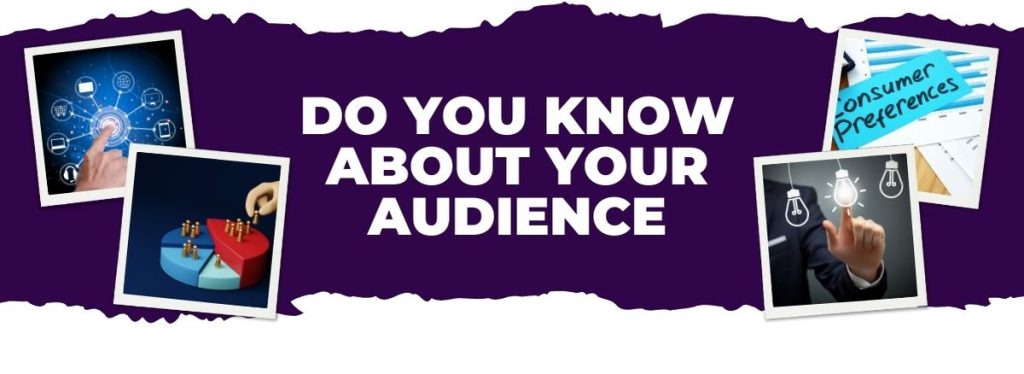
Understanding your audience is crucial for an entrepreneur because it directly impacts the success and sustainability of their business. Here’s how delving into this point can solve significant problems for entrepreneurs:
- Pain Points: By understanding your audience’s pain points, you gain insights into the challenges they face and the problems they need solving. This knowledge allows you to tailor your products or services to address these pain points directly. For instance, if you discover that busy professionals struggle with time-consuming tasks like meal preparation or managing their workload, you can develop solutions such as meal delivery services or virtual assistant offerings to alleviate their stress and enhance their productivity.
- Specific Preferences: Every audience has unique preferences and preferences. By gaining a deep understanding of your target audience, you can tailor your offerings to match their preferences accurately. This ensures that your products or services resonate with your audience on a deeper level, increasing their likelihood of adoption and satisfaction. For example, if your target audience prefers convenient and time-saving solutions, you can design your service delivery model to prioritize efficiency and ease of use.
- Demographic Insights: Demographic information provides valuable context about your audience’s characteristics, such as age, gender, income level, location, etc. Understanding these demographics helps you segment your audience effectively and personalize your marketing efforts. For instance, if your target audience consists primarily of young urban professionals, you can create marketing campaigns that resonate with their lifestyle and interests, thereby increasing engagement and conversion rates.
- Business Ideas: Armed with a deep understanding of your audience, you can tailor your business ideas to cater specifically to their needs and preferences. This increases the relevance and appeal of your offerings, making them more attractive to your target market. For instance, if your research reveals a high demand for healthy, on-the-go meal options among busy professionals, you might decide to launch a meal delivery service specializing in nutritious, ready-to-eat meals tailored to their dietary preferences and schedules.
Understanding your audience enables you to identify their pain points, cater to their preferences, leverage demographic insights, and tailor your business ideas accordingly. This not only enhances the relevance and appeal of your offerings but also increases customer satisfaction and loyalty, ultimately leading to the success and growth of your business.
Profitability and Possibility
Passion is crucial, but so is profitability. Evaluate factors like market size, competition, revenue streams, and startup costs. Conduct a SWOT analysis to gauge the feasibility(possibility) and sustainability of your business concept.
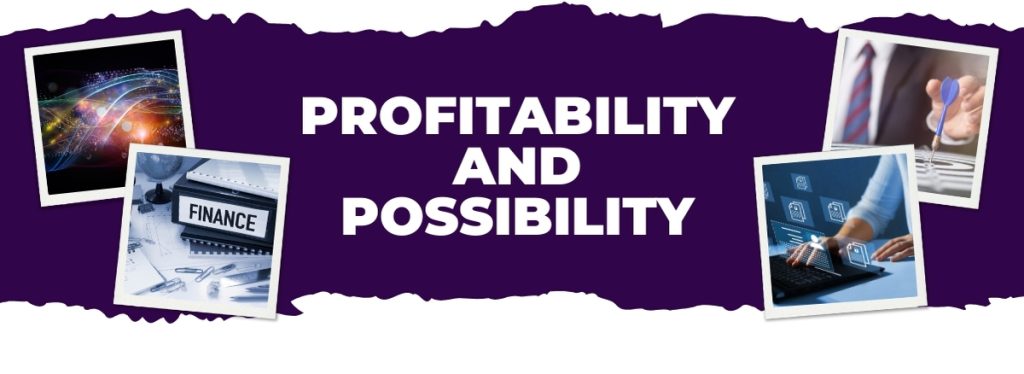
Assessing profitability and feasibility is a critical step for any entrepreneur, as it addresses several key concerns and challenges they might encounter:
- Financial Viability: By evaluating factors such as market size, competition, and revenue streams, entrepreneurs can gauge whether their business idea has the potential to generate enough income to sustain itself and grow over time. This analysis helps in understanding the financial landscape of the chosen industry or niche, identifying potential revenue sources, and estimating the expected return on investment.
- Market Dynamics: Assessing profitability involves analyzing the market to identify opportunities and threats. Entrepreneurs can gain insights into consumer behavior, industry trends, and market demand, allowing them to tailor their products or services to meet specific needs or capitalize on emerging trends. Understanding the competitive landscape also helps in positioning the business effectively and identifying strategies to differentiate from competitors.
- Managing Risks: Conducting a SWOT (Strengths, Weaknesses, Opportunities, Threats) analysis enables entrepreneurs to identify potential risks and challenges associated with their business concept. By understanding their strengths and weaknesses, entrepreneurs can capitalize on advantages and mitigate potential weaknesses. Similarly, identifying opportunities allows entrepreneurs to leverage market trends and emerging opportunities, while recognizing threats helps in implementing risk mitigation strategies to protect the business from external factors that may impact its success.
- Optimizing Resource Allocation: Evaluating startup costs and potential revenue streams helps entrepreneurs in making informed decisions about resource allocation. This includes budgeting for initial investments, operational expenses, marketing initiatives, and other essential aspects of starting and running a business. Understanding the financial requirements upfront allows entrepreneurs to plan effectively, allocate resources efficiently, and optimize their chances of success.
- Realistic Goals and Expectations: Assessing profitability and feasibility provides entrepreneurs with a realistic understanding of what to expect from their business venture. It helps in setting achievable goals, defining measurable objectives, and establishing benchmarks for success. By having a clear understanding of the financial implications and market dynamics, entrepreneurs can set realistic expectations and timelines for achieving their business goals.
By assessing profitability and feasibility, entrepreneurs can mitigate risks, optimize resource allocation, and set realistic goals for their business venture. This process allows them to make informed decisions, maximize their chances of success, and build a sustainable and profitable business in the long run.
This Works: Small, Adapt, and Grow
Don’t stress about finding the perfect idea right away. Begin with small steps, test your concepts, and adapt based on feedback. Launch a minimum viable product or run a pilot program to refine your offering before scaling up.
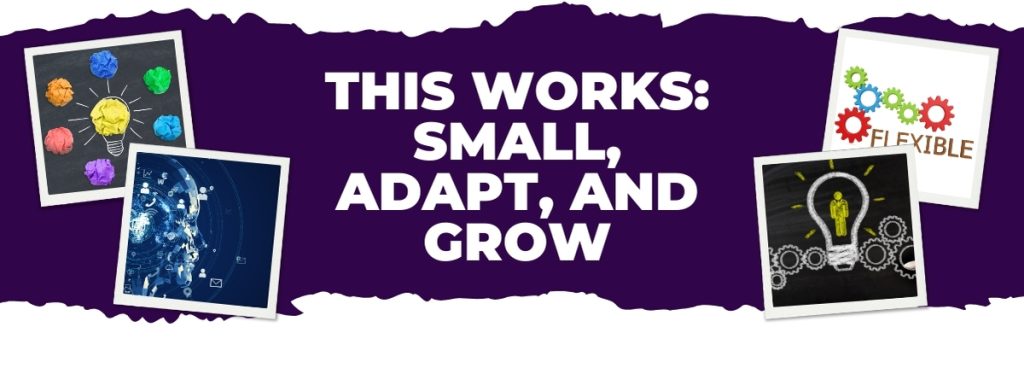
Starting small, adapting, and growing allows entrepreneurs to navigate the complexities of entrepreneurship with greater ease and effectiveness. Here’s how:
- Reduced Risk: By starting small, entrepreneurs minimize the financial and operational risks associated with launching a new venture. Instead of investing substantial resources upfront into a fully developed product or service, they can test the waters with minimal investment. This approach mitigates the risk of failure and preserves capital for future growth.
- Iterative Learning: Launching a minimum viable product (MVP) or running a pilot program enables entrepreneurs to gather valuable feedback from early adopters and customers. This feedback loop provides insights into what works well and what needs improvement, allowing entrepreneurs to iterate and refine their offering accordingly. This iterative learning process accelerates the development of a product or service that resonates with customers, increasing the likelihood of success in the long run.
- Concept Validation: Starting small allows entrepreneurs to validate their business idea in the real market environment. By testing their concepts with a targeted audience, entrepreneurs can gauge the level of demand, identify potential pain points, and assess the feasibility of their business model. This validation process helps entrepreneurs make informed decisions about whether to pivot, persevere, or abandon their idea before investing significant time and resources.
- Resource Optimization: Launching a minimum viable product or pilot program requires fewer resources compared to a full-scale rollout. Entrepreneurs can allocate their resources more efficiently, focusing on key areas such as product development, marketing, and customer acquisition. This resource optimization ensures that resources are used judiciously, maximizing the impact and effectiveness of each investment.
- Agility and Flexibility: Starting small fosters a culture of agility and flexibility within the entrepreneurial venture. Entrepreneurs can quickly adapt to changing market dynamics, customer preferences, and competitive pressures based on real-time feedback and data insights. This adaptability enables entrepreneurs to pivot their strategy, iterate on their product or service, and seize emerging opportunities with speed and efficiency.
Overall, starting small, adapting, and growing empowers entrepreneurs to navigate the unpredictable journey of entrepreneurship with resilience, agility, and confidence. By embracing a mindset of continuous improvement and iteration, entrepreneurs can increase their chances of long-term success while minimizing the inherent risks and challenges of building a new business.
Inspiration and Support
Seek inspiration from successful entrepreneurs and industry leaders. Learn from their experiences through books, workshops, and mentorship. Surround yourself with a supportive network that encourages your entrepreneurial journey.
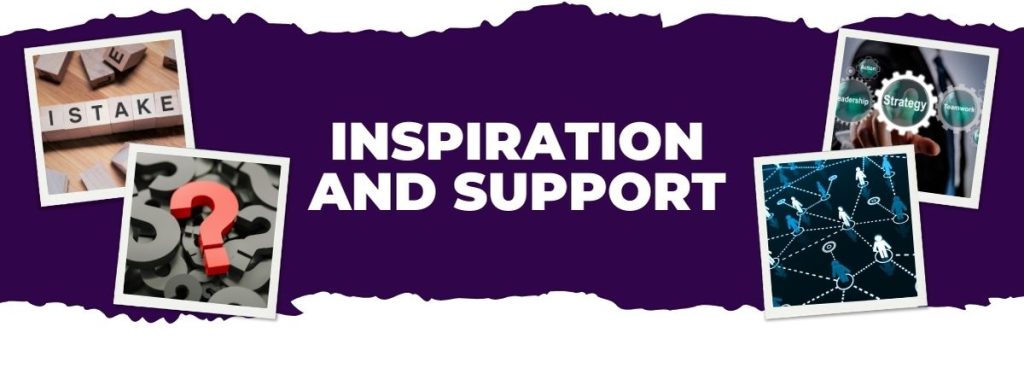
“Find Inspiration and Support” is a critical point that can solve several problems for an entrepreneur:
- Self-Doubt and Uncertainty: Starting a business can be daunting, especially when faced with doubts and uncertainties. Seeking inspiration from successful entrepreneurs who have navigated similar challenges can provide reassurance and motivation. Learning from their experiences and successes can help entrepreneurs believe in their abilities and approach their journey with confidence.
- Challenges and Obstacles: Every entrepreneur encounters obstacles along the way, whether it’s dealing with setbacks, overcoming failures, or navigating complex business decisions. By learning from the experiences of successful entrepreneurs, individuals can gain insights into how to tackle challenges effectively. They can learn about different strategies, problem-solving approaches, and resilience techniques that have proven successful in real-world scenarios.
- Costly Mistakes: Mistakes are inevitable in entrepreneurship, but learning from the mistakes of others can help entrepreneurs avoid making the same costly errors. By studying case studies, reading books, and attending workshops led by experienced entrepreneurs, individuals can gain valuable insights into common pitfalls and how to sidestep them. This knowledge can save time, money, and resources by helping entrepreneurs make more informed decisions from the outset.
- Strategic Insights and Direction: Successful entrepreneurs often have valuable insights into industry trends, market dynamics, and strategic decision-making. By surrounding themselves with mentors and peers who have a deep understanding of their field, entrepreneurs can gain strategic insights that can shape their business direction. Whether it’s identifying emerging opportunities, understanding consumer behavior, or refining their business model, this guidance can be invaluable in driving the success of their venture.
- Supportive Network: Entrepreneurship can be a lonely journey, but having a supportive network can make all the difference. By surrounding themselves with like-minded individuals who understand the challenges and triumphs of entrepreneurship, individuals can find encouragement, advice, and camaraderie. This network can include mentors, peers, industry contacts, and support groups who provide emotional support, practical advice, and opportunities for collaboration.
Overall, seeking inspiration and support from successful entrepreneurs and industry leaders can help entrepreneurs overcome self-doubt, navigate challenges, avoid costly mistakes, gain strategic insights, and build a supportive network. By learning from the experiences of others and surrounding themselves with a community of mentors and peers, entrepreneurs can increase their chances of success and thrive in their entrepreneurial journey.
Conclusion
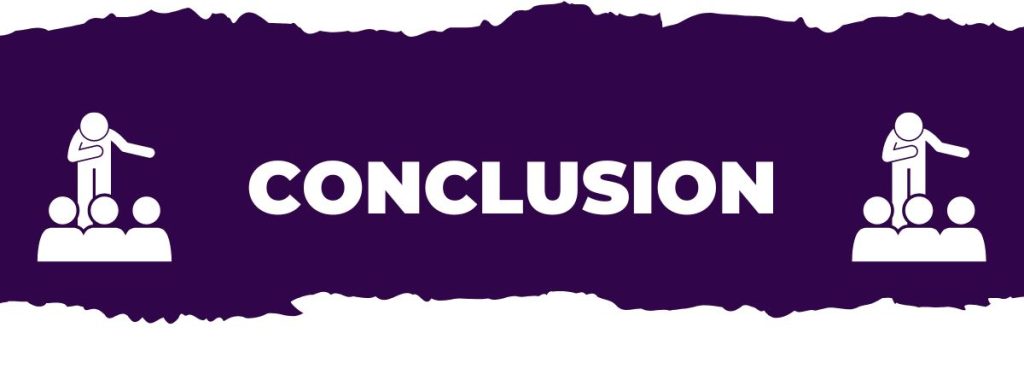
In conclusion, discovering your ideal business idea is a blend of self-reflection, market exploration, and innovation. By aligning your passions, skills, and market demand, you’ll unlock a business opportunity that not only fulfills your dreams but also serves your audience’s needs. Stay flexible, resilient, and determined on your entrepreneurial path – turning your business dreams into reality is possible with dedication and perseverance.
Here is another important and very useful article related to business and Entrepreneurs, Click.

